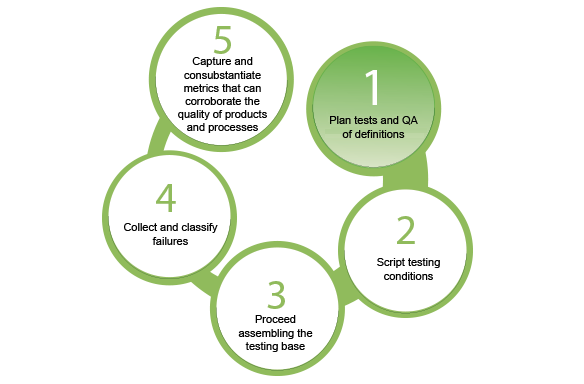Quality Assurance
When conducting software testing (functional, unit, regression, performance, etc.), QA produces artifacts that document, monitor, and prove that your software has a certain level of quality, but it doesn’t adds quality to the product—it just makes evident the quality the product already has.
QA consists of much more than pure and simple testing. The tests come in the end of the process. There are techniques used throughout the development process that ensure software quality.
Agrione has both the structure and the specialized personnel to meet your demands for Quality Assurance. Besides having professionals with extensive experience in the area, we use the best tools for Test Management and Quality Assurance Automation. Here is how you can help your company to ensure that your projects are ready for proper deployment.
Project certification with independent management
- Process
- •Software quality, through lines of action focused on the activity or the certification process.
- Knowledge
- •Business intelligence to assess, test, and certificate third parties’ developments and implementations.
- Techniques
- •Efficient testing processes that aim to detect, as soon as possible, potential risks that may jeopardize the business application.
- Supervision
- •Assurance that what is being developed or implemented actually meets the clients’ and their businesses’ expectations.
Steps to ensure Quality

Methodology: CMMI Model –IEEE 829 Standard
The adopted methodology defines a generic testing process that provides for planning, specification, execution, and follow-up activities, using unit, integration, system, and acceptance techniques.
The process begins at the project requirements phase. eBased on the requirements, we develop a testing plan, the strategy to be employed, and the necessary steps to ensure project quality.
More than presenting a set of documents, the methodology presents the information needed for testing the software products.


